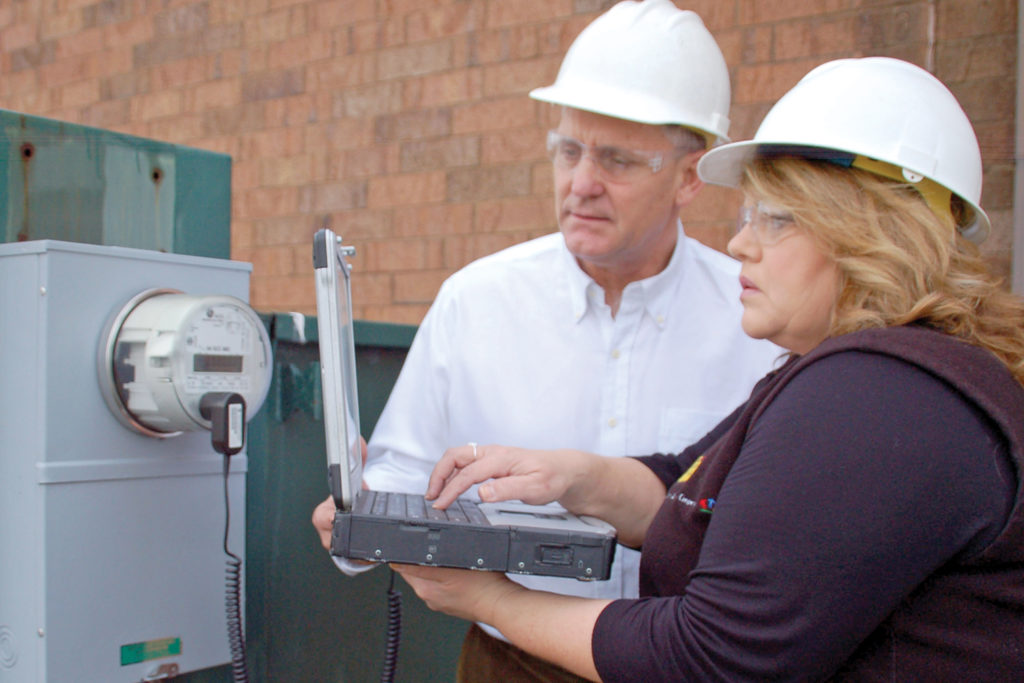How’s this for a job description? A bit of Sherlock Holmes, plus numbers cruncher, technology wizard, problem solver, with a cheerful outlook and the ability to work well with others—that’s just a partial list of what it takes to become a co-op energy advisor.
All that expertise is just a phone call or mouse click away to get reliable, trustworthy answers to your energy questions.
Scott Carbary is the energy service advisor at Attica, Ohio-based North Central Electric Cooperative and also travels to Lorain-Medina Rural Electric Cooperative in Wellington and Firelands Electric Cooperative in New London.
“What I love the most about my job is meeting the co-op members and helping them make the most energy-efficient decisions they can,” Carbary said. “I talk with homeowners, farmers, small business people, schools—I go anywhere co-op members need me.”
Carbary enjoys the challenge of answering a variety of questions in many different kinds of situations. “I’m not trying to sell something. I’m going to look at the bigger picture and take everything into consideration. As a co-op, we want to help folks use energy wisely—and spend their money wisely, too,” he said.
Expert Training and Expertise

Co-op energy advisors bring a range of experience and background to the job. Some began as independent heating, ventilating and air conditioning contractors, while others have experience within the co-op system ranging from lineman to engineer.
They keep up-to-date with the latest technology and energy-efficiency concepts by attending hands-on workshops and training offered throughout the year by Ohio’s Electric Cooperatives, the statewide association headquartered in Columbus.
Carbary and other co-op energy advisors also study detailed coursework offered by the Building Performance Institute (BPI), a nationally recognized credentialing program.
Using rigorous exams, BPI certifies energy advisor professionals in various areas of energy evaluation, building analysis (including homes, offices and other business structures), diagnostics and best practices to use energy efficiently.
Energy advisors also keep their skills sharp with additional training programs offered by Touchstone Energy® Cooperatives and accredited training programs such as Everblue.
All that training is important for two reasons. No two homes are alike, so energy advisors must be able to apply their knowledge in many different kinds of situations. And the tools they have available to help them keep advancing.
“The technology our energy advisors are able to use in the field now, things like computer tablets, are pretty cool. Our advisors have information at their fingertips and can give answers right away at the site,” said Jeff Campbell, director of energy services at South Central Power, Lancaster, Ohio.
Solving Mysteries, Making Friends

One of the most common questions energy advisors receive is, “Why did my electric bill jump so high?”
“It’s like a puzzle. You have to find out what’s going on inside their home,” said Ted Riethman, marketing and energy use specialist at Pioneer Electric Cooperative, Piqua, Ohio. “They may not have a clear understanding or an awareness of what’s using electricity.
“I look at everything and try to narrow it down, to point out all the places where electricity is going inside the home. Sometimes it comes as a real surprise to our co-op members to find out how much electricity portable infrared heaters use. I enjoy it so much when I explain something to a member and he or she says, ‘OK, now I get it!’ All those little successes add up and make my job satisfying.”
When Bruce Warnecke, energy services advisor at Hancock-Wood Electric Cooperative, North Baltimore, Ohio, got a call from a co-op member whose bill had spiked 30 percent, he went out to her place to take a look around, Sherlock Holmes-style.
“I did some investigating at her electric panel,” Warnecke recalled, “and discovered that her well pump was running constantly, probably because of something stuck in the intake. I turned off the breaker, reset the pump and solved the problem for her.”
Understanding all the ins and outs of country living played a big role at another member’s place a few weeks later. “As I was telling that fellow about the things he could try to conserve energy in his house, I mentioned that I farm—and next thing you know, we’re out in a golf cart in the middle of his soybean fields,” Warnecke said.
“By the time we got back to the house, it seemed like we were best friends, and my visit really changed his mind about the services our co-op offers.”
Choosing the Best Energy Values
Co-op energy advisors don’t just solve problems — they also offer impartial advice to members considering changes to their heating and air-conditioning systems, upgrading insulation, adding solar panels or making any kind of improvement for energy efficiency at their home or business.
“I’m always glad to sit down with a co-op member and wade through the paperwork, examine contractors’ estimates and give the member a good picture of realistic payback times,” Carbary said. “I look at the whole situation.”
Advising members on wise energy use is a responsibility all cooperatives take seriously.
Whether or not your co-op has a full-time energy advisor on staff, rest assured you can call on them for advice on energy-related issues.
Nancy Grant is a freelance writer from Fisherville, Kentucky.